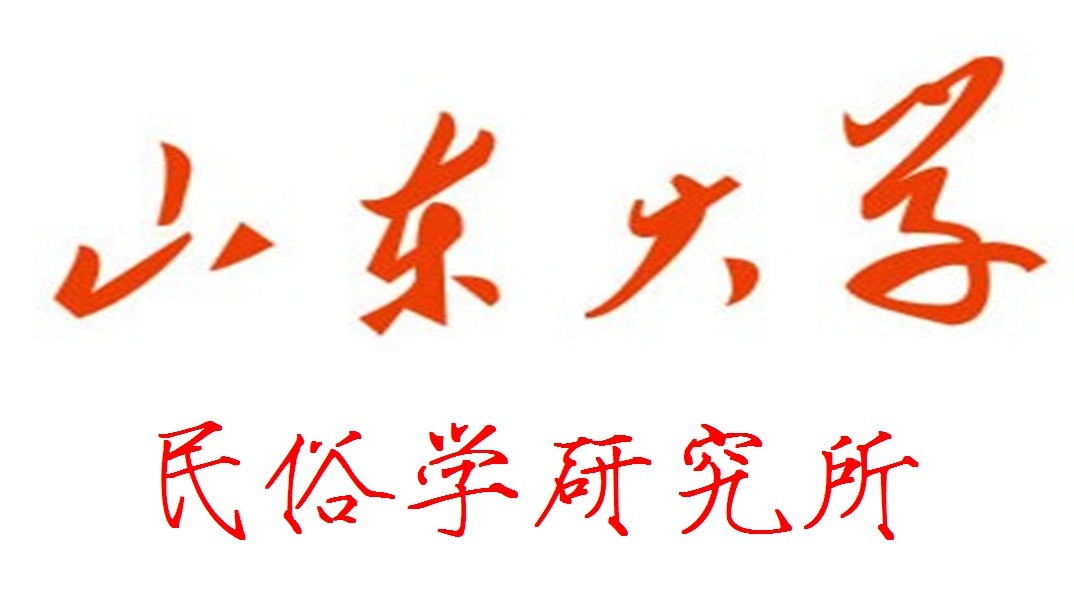發展歷程
山東大學是國內較早開展民俗學和民間文學教學與科研的高校之一。20世紀 80 年代我國民俗學恢復之初,我校中文系便已開設民俗學碩士研究生課程。1984 年,我校籌建社會學系時設立有民俗學教研室。1985年創辦了《民俗研究》雜誌。1987 年 11 月,在原社會學系民俗學教研室的基礎上成立山東大學民俗學研究所,該所當時是國內唯一有獨立建制的民俗學專業研究機構。 2002 年山東大學文史哲研究院成立,民俗學研究所併入研究院。徐經澤教授、葉濤教授曾先後擔任本所所長,現任所長張士閃教授。民俗學研究所現為山東省首批非物質文化遺產重點研究基地。掛靠在山東大學的山東省民俗學會,秘書處也設在該所。
成立背景
山東大學的民間文學研究有著悠久的歷史。早在 20 世紀30年代,聞一多先生的神話學研究就是在青島山東大學任教期間完成的。20 世紀 50 年代,我校是國內最早開設民間文學課程的高校之一。關德棟教授的俗文學和敦煌學研究在國際學術界有較大影響,李萬鵬教授的中國曲藝和民間小戲研究、葉濤教授的中國戲曲民俗研究、張士閃教授的藝術民俗學研究在國內也獨樹一幟。
學科建設
1998年山東大學成為我國首批民俗學碩士學位授予權單位,該碩士點下設理論民俗學、中國民俗史、比較民俗學和區域民俗研究 4 個研究方向。2002年山東大學獲得中國民間文學博士學位授予權,該博士點下設民間文學、中國民間文學史、民俗與民間敘事研究 3 個研究方向。民間文學碩士點下設中國民間文學理論研究、中國民間文學史、中國俗文學與俗文學史、當代民間文學研究 4 個研究方向。
科研隊伍
民俗學研究所現有在職研究人員5名,其中教授 2 名,副教授 1 名,講師 2 名,另有校內外兼職研究人員多名。中國民俗學會副理事長、博士生導師齊濤教授,研究方向為中國民俗史和中國古代社會史,主要著作有《中國民俗史論》、《魏晉隋唐鄉村社會研究》、《絲綢之路探源》等。中國民俗學會副理事長兼秘書長、博士生導師葉濤教授的研究方向為民俗學民間文學基礎理論、中國民間信仰和區域民俗,主要著作有《民俗學導論》、《中國民俗》、《泰山石敢當》、《中國牛郎織女傳說》等。張士閃教授的研究方向為民俗學基礎理論、藝術民俗學,主要著作有《鄉民藝術的文化解讀》、《中國藝術民俗學》等。著名民俗學家、民間文藝學家劉鐵梁教授為本所中國民間文學專業兼職博士生導師,劉德龍研究員和劉徳增教授為本所兼職碩士生導師。
主要業績
本所教師承擔著多項國家、省部和學校的科研課題,其中正在進行調研的課題有:“中國古代鄉村宗族研究”(教育部重點課題)、“社會轉型與精神重建:20世紀華北村落民俗藝術研究”(國家社會科學基金藝術學項目)、“華北鄉村社會姻親關係研究”(國家社會科學基金青年課題)、“泰山信仰與中國社會”(教育部重大課題子課題)等。此外還多次與日本、韓國、德國等國家和香港、台灣的學者聯合進行田野調查,共同開展相關課題的研究。由齊濤擔任主編、葉濤擔任副主編的國家重點出版規劃項目――《中國民俗通志》,是目前國內規模最大的專題民俗文化叢書,自 2006 年起陸續由山東教育出版社陸續推出。
主辦刊物
山東大學主辦、民俗學研究所負責編輯的《民俗研究》雜誌,是目前國內唯一公開發行的民俗學理論刊物。《民俗研究》雜誌創辦於 1985 年 10 月,1988 年起國內外公開發行。該刊是CSSCI來源期刊,中國人文社會科學核心期刊,在國內外學術界享有較高聲譽。該雜誌曾先後與山東畫報出版社、山東教育出版社協辦。《民俗研究》雜誌由國內知名學者組成編委會,編委會主任為齊濤教授。徐經澤教授、李萬鵬教授等先後擔任雜誌主編,現任主編為葉濤教授。
辦學歷史
Shandong University is one of earliest unit with its teaching and research of folklore in China. As early as 1980s when folklore study was rebuilt in China, folklore courses were given to the postgraduates in Shandong University. In 1984, the folklore teaching and research office was set up. In 1985 the academic journal of folklore—Folklore Studies began to issue. In 1987, the Folklore Research Center with its independent designation in Shandong University was set up. In 2002, the Research Center of Folklore was integrated into the Institute of Literature, History and Philosophy. Prof. Xu Jingze and Ye Tao used to be the director successively. The present director is Prof. Zhang Shishan.
The research of folk literature in Shandong University has a long history. As early as 1930s, Mr. Wen Yiduo had already completed his mythology research while he worked as a teacher in this University. During 1950s, the courses of folk literature were as a pioneer taught to students. Prof. Guan Dedong’s research in popular literature and Dunhuangnology made important influence in the international academia. Prof. Li Wanpeng’s research in Chinese Quyi (Chinese folk art forms) and folk small dramas, Professor Yetao’s research in Chinese opera folklore and Professor Zhang Shishan’s artistic folklore research are all unique in the domestic academia.
In 1998, Shandong University became one of the first universities which obtained the master’s degree conferral right for folklore. In 2002, Shandong University obtained the doctor’s degree conferral right for Chinese folk literature. The doctoral program has three research directions: folk literature, the history of Chinese folk literature, folklore and folk narrative. Folk literature master program has four research directions: theory research of Chinese folk literature, the history of Chinese folk literature, Chinese popular literature and the history of Chinese popular literature, the research of the present folk literature.
At present, there are 5 full-time researchers in this center as follows: Zhang Shishan, Ye Tao (chair professor), Li Hao, Diao Tongju, and Wang Jiahua. Among them, there are two professors, one associate professor and two lecturers. Prof. Ye Tao is the Vice Board Chairman of China Folklore Society and holds concurrently General Secretary of China Folklore Society, with his research directions of the basic folklore theories and folk literature, Chinese folk belief and regional folklore. Professor Zhang Shishan’ research directions are the basic folklore theories and artistic folklore. Besides, there are several part-time researchers, such as Prof. Qi Tao, who is the Vice Board Chairman of China Folklore Society and Doctoral Supervisor, with his research directions of the Chinese folklore history and the history of ancient Chinese society; Prof. Liu Tieliang, who is a famous scholar of folklore and folk literature and art, Doctoral Supervisor; Research Fellow Liu Delong and Prof. Liu Dezeng, who are master supervisors in this center.
The teachers in this center are in charge of many national, provincial and ministerial or university scientific research projects. The investigating projects as follows: Research in Chinese Ancient Country Agnation (key task project of the Education Ministry); Social Transformation and Reconstruction of Spirits---- Research in North China’Village folklore art of 20th Century (the artistic project of the national social science fund); Research in Marriage Relationship of Rural society of North China ( the youth projet of national social science fund) ; Mount Tai Worship and Chinese Society( a sub project of great subject of the Education Ministry)etc. Besides, they often cooperate with the scholars from Japan, Korea, Germany, Hong Kong and Taiwan to carry out field work, and also start relational research together. Chinese Folklore General Records, the key project of national publishing plan, is the biggest series of folklore culture. The editor in chief of the series is Professor Qi Tao and the subeditor is Professor Ye Tao. The series has been published in succession by Shandong Education Press since 2006.
Folklore Studies, sponsored by Shandong University and editted by this center, is the only academic journal of folklore that is published in China. Folklore Studies was started in October 1985 and published domestically and abroad from 1988. The journal is one of CSSCI Original Periodicals and is also one of the core periodicals of Chinese humanistic social science, enjoying a good reputation in domestic and abroad academia. The editorial committee of Folklore Studies is made up of the domestic famous scholars. The director of the editorial committee is Professor Qi Tao. Professor Xujingze and Professor Li Wanpeng had successively served as the chief editor of the periodical. The present editor in chief is Professor Ye Tao.
At present, the Folklore Research Institute is one of the first important bases, which carry out the research in intangible culture heritage in Shandong Province. Shandong Folklore Society is a titular academic organization in Shandong University and its Secretariat is located in this research center.

